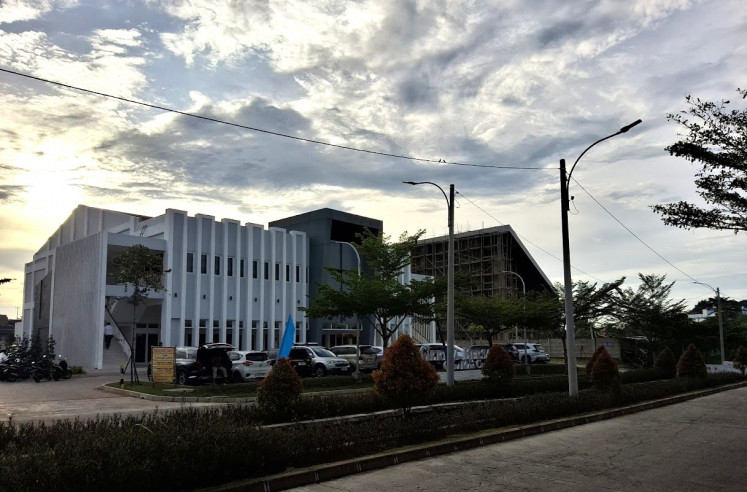Popular Reads
Top Results
Can't find what you're looking for?
View all search resultsPopular Reads
Top Results
Can't find what you're looking for?
View all search resultsNew legal view on real estate assets in bankruptcy
At present, no specific law exists to regulate the transfer of property rights for land or condominium units.
Change text size
Gift Premium Articles
to Anyone
B
uyers of condominium (strata-type) apartments have long fought for their legal right to be considered the lawful owner of the property that they have purchased, even though a sales-andpurchase deed (AJB) has not been drawn up.
Their struggle continues because many apartments/condominiums are built, purchased, paid in full and already occupied by the buyers, but the buyers hold no legal ownership over it, except for a preliminary agreement called the conditional sales and purchase agreement (PPJB).
At present, no specific law exists to regulate the transfer of property rights for land or condominium units. What is regulated under the existing property registry regulation is that in order to register the transfer of land rights, one should comply with the process for registering an official land deed (PPAT) in accordance with prevailing laws.
This provision might also be affected by the Supreme Court’s 1970 decision that later became jurisprudence, which stipulates that in order to examine the materiality of transfer of land rights, judges are not bound by the land registry regulation.
This means that the transfer of land rights is legally effective under pre-PPAT deeds and even without it. The issue is, at what point is the property then considered to be transferred?
Our property laws are based on customary (adat) law, which stipulates that a property transfer must fulfill two conditions, i.e. clear (terang) and cash (tunai). “Clear” means that a legal action is taken with the PPAT so that the process is transparent. It also means that the transfer has occurred. “Cash” means that the rights transfer occurs upon cash payment. The customary law is different from Dutch law, which stipulates that the transfer of property rights occurs only after legal delivery of the property (levering) through registering a change in title, even though the property has already been sold and purchased.
Specifically for condominium units, a 1988 regulation stipulates that the transfer of rights for condominium units is made through the AJB sales-and-purchase deed drawn before a PPAT office places on the unit an ownership certificate, articles of association and condominium by-laws, as well as other relevant documents. One can see that under the condominium property regulation, it is imperative to understand that the transfer is made effective only when the unit is registered under an AJB prior to PPAT.


















